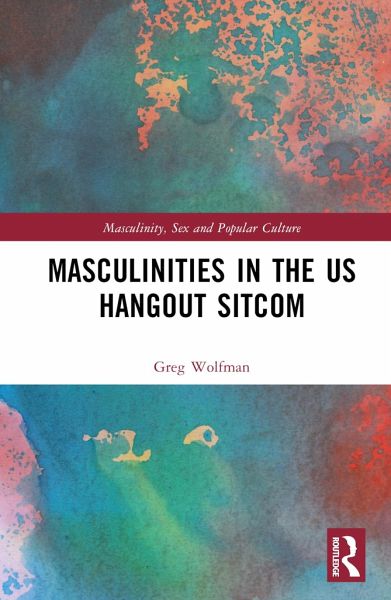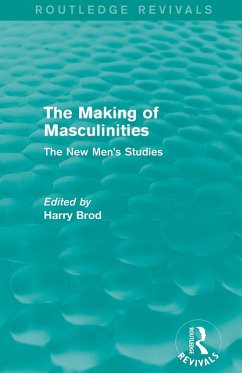
Masculinities in the US Hangout Sitcom
Versandkostenfrei!
Versandfertig in 6-10 Tagen
154,99 €
inkl. MwSt.
Weitere Ausgaben:

PAYBACK Punkte
77 °P sammeln!
Masculinities in the US Hangout Sitcom examines how four sitcoms - Friends, How I Met Your Mother, The Big Bang Theory, and New Girl - mediate the tense relationship between neoliberalism and masculinities.Why is Ross in Friends so worried about everything? This book argues that the men in Friends and similar shows that follow young, straight, mostly white twentysomethings in major US cities are beset by a range of social and economic concerns about their place in society. Using multiple methods of analysis to examine these shows - including conjunctural analysis, historiographical method, and...
Masculinities in the US Hangout Sitcom examines how four sitcoms - Friends, How I Met Your Mother, The Big Bang Theory, and New Girl - mediate the tense relationship between neoliberalism and masculinities.
Why is Ross in Friends so worried about everything? This book argues that the men in Friends and similar shows that follow young, straight, mostly white twentysomethings in major US cities are beset by a range of social and economic concerns about their place in society. Using multiple methods of analysis to examine these shows - including conjunctural analysis, historiographical method, and critical discourse analysis - a range of topics in these shows are examined, from sexuality through to homosociality, from race through to nationality.
This book makes an insightful contribution to work on the television sitcom and on neoliberalism in culture and society. It will be an ideal resource for upper-level undergraduates, post-graduates, and researchers in a range of disciplines including television and screen studies, critical studies on men and masculinities and humor studies.
Why is Ross in Friends so worried about everything? This book argues that the men in Friends and similar shows that follow young, straight, mostly white twentysomethings in major US cities are beset by a range of social and economic concerns about their place in society. Using multiple methods of analysis to examine these shows - including conjunctural analysis, historiographical method, and critical discourse analysis - a range of topics in these shows are examined, from sexuality through to homosociality, from race through to nationality.
This book makes an insightful contribution to work on the television sitcom and on neoliberalism in culture and society. It will be an ideal resource for upper-level undergraduates, post-graduates, and researchers in a range of disciplines including television and screen studies, critical studies on men and masculinities and humor studies.













